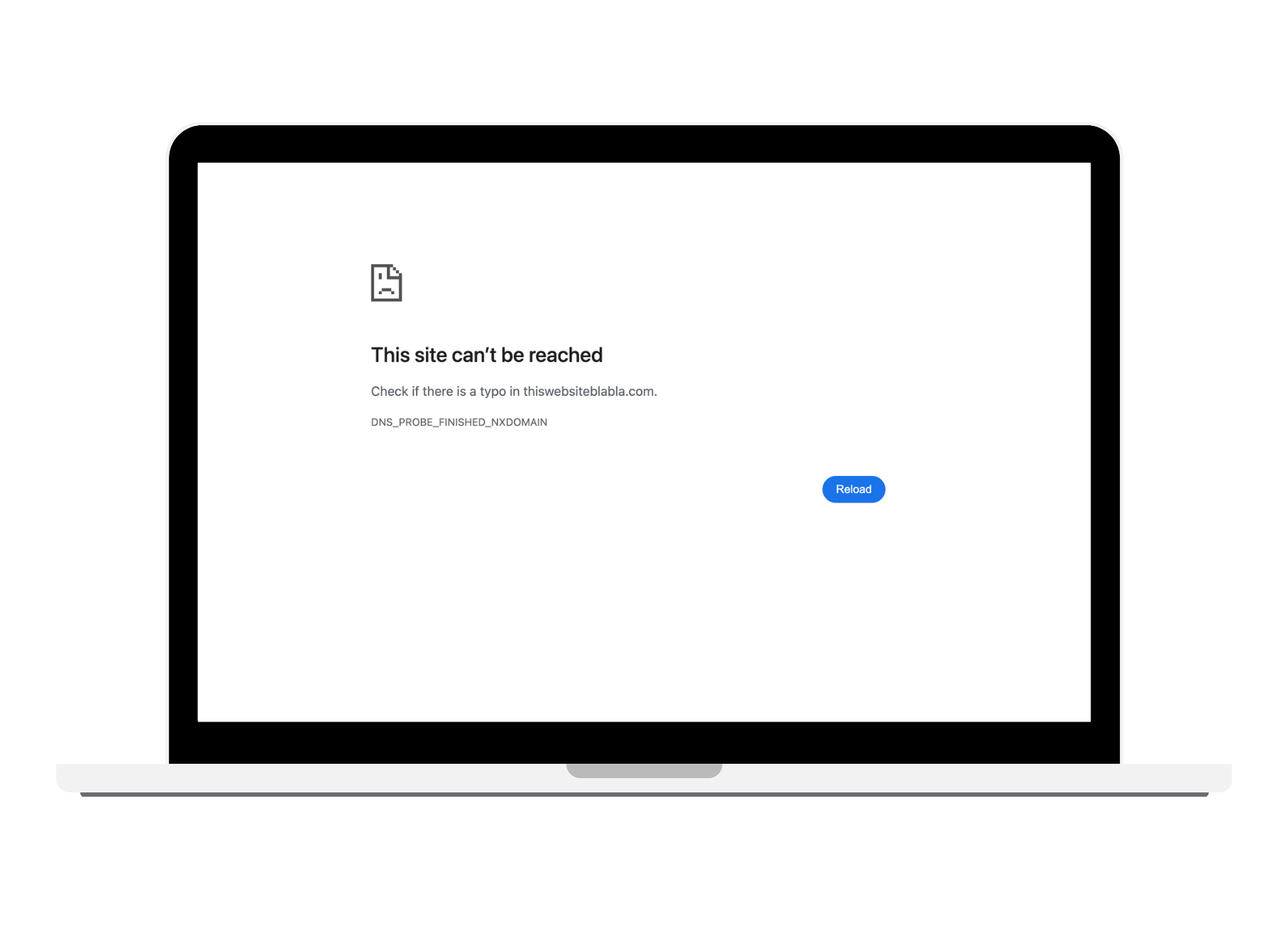
Identifying the Top 5 Risks of Not Performing Website Monitoring
Now that there is no way in the world to perform without the Internet, having a website for your business is a total must. Unmonitored and left to its own devices, however, it can do more harm than good. In this article, we'll outline what dangers your web page faces if you forget to monitor it.
Website downtime
If your website isn’t monitored on a regular basis, you may not catch in time when downtime or errors in its functioning, such as endless loading or server problem messages, occur.
Sometimes, information about such troubles can reach you even after many hours when frustrated customers are unable to purchase products or check information about services for a long time. Annoyed by such a turn of events, they may lose confidence in your business and decide to move to a competitor.

You can easily avoid this problem if your website uses software to monitor it, such as server monitoring tools (such as Zabbix, Nagios, or Prometheus). Implementing them will ensure that the moment server problems interrupt the display of your website, you’ll know about it almost immediately. This will give you a chance to react quickly and avoid customer dissatisfaction.
Declines in SEO positions
Search engine algorithms like websites that are reliable, have no accessibility issues, and work quickly. So the more downtime your web page has and the longer they are, the more it will negatively affect SEO and rank lower in the search engine. Why?
Indexing the content of websites is done by search engine robots. They do this regularly by browsing the available ones. If your web page frequently has downtime or performance problems, the bots will also be unable to access it. This can lead to incomplete indexing or errors in understanding the website's structure. As a result, this will lower its SEO and translate into decreased click-through rates.
As you know, lower rankings in search results can lead to poorer sales of your goods and services, which you want to avoid. Regular website monitoring will give you the advantage of error in the form of faster response times than average. So, it's not worth passing up such an opportunity and letting your business position lower than your competitors.
No information about the type of website’s problem
When problems arise with the functioning of your website, the action becomes similar to how a doctor works. You need to know the cause of the disease in order to treat it accurately and effectively. So your patient becomes your web page, your doctor becomes your IT specialist, and your tool for quick diagnosis becomes website monitoring.
By using application monitoring, you can find out not only that a problem exists but also what the problem is. With such information, it’s definitely easier to work towards fixing the problem and bringing the "patient" back to health.
Regular monitoring will help you catch performance errors, which can be caused by several factors. Here are examples of some of them:
- Server errors – “500” errors occur when the server "doesn’t respond." An error message is displayed to the client instead of the website. In this case, the problem stands not on the side of your web page, but directly on the side of the server. The occurrence of "five hundred" can directly affect the website's positioning.
- Errors in the code – they can manifest themselves in many ways and affect the functioning of your website differently. Some can block your web page from loading independently, while others can only do damage when combined with user action.
- Sudden spikes in website traffic – increased traffic can occur spontaneously (when, for example, you hold a big promotion for your products) or due to a Distributed Denial of Service (DDoS) attack. The web page then takes longer to load than usual, and when it finishes loading, a timeout message appears in place of the actual content.
- Unavailability of external services – if you use external tools on your website, such as contact form software, you need to consider that they may occasionally stop working. You can set your website monitoring tools to include these services as well. Then, you'll get an indication of when the hindrances occur and warn customers about them.
Poor user experience
As website users, we like everything to work smoothly and flawlessly, right? That's why we can quickly get annoyed when a website loads slowly or even not at all. Your customers will be unhappy when your web page stops responding or presents symptoms of a lack of security.
Such a situation can take a toll on your earnings. Customers, after all, will be less likely to return to an online store where they have already failed to shop once. So it's worth ensuring everything is working seamlessly – and when an error happens, thanks to regular monitoring, you'll know about it immediately.
Skipping updates
It's easy to forget that the software you use on your website – just like any other systems you use on a daily basis – needs to be updated regularly. Failure to take care of such an essential element not only puts your website at risk of downtime. It also becomes vulnerable to hacking attacks.

Source: web.dev
Using outdated solutions always comes with security vulnerabilities that just ask to be exploited by the wrong people. Outdated software can have holes in its code, allowing attackers to access places they shouldn't have, such as a database with personal information. Using outdated solutions can also prove costly and difficult to maintain.
We wrote more about what you risk when using such solutions and the benefits that upgrading will give you in our article on legacy systems.
The software that takes care of monitoring your web page can be configured to let you know about updates available to you almost immediately. Setting this option will significantly increase your confidence that your website is secure.
Not performing website monitoring – summary
You can now see how important it is to monitor your website, how many risks can be avoided by doing so, and what benefits it brings. Using monitoring software makes a lot of things easier when it comes to keeping your web page in a good and safe condition. So, deciding on this important step and implementing this solution on your website is crucial. Let our application and server monitoring specialists help you take care of it.













